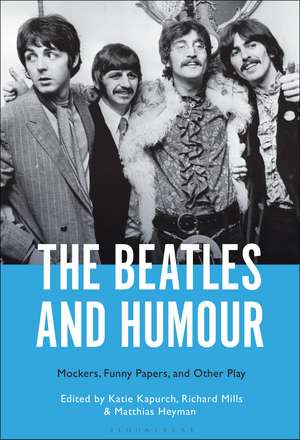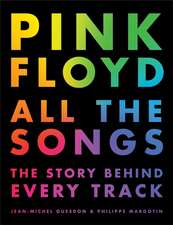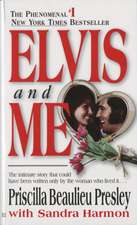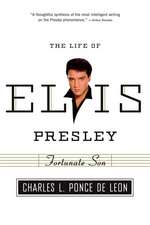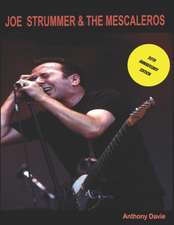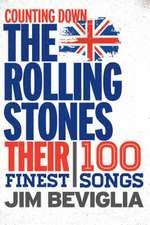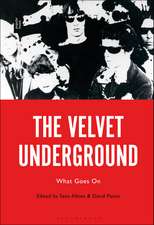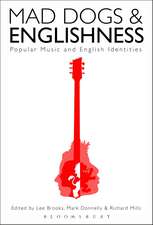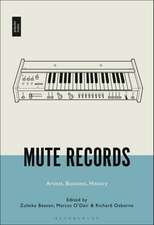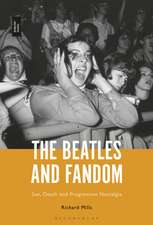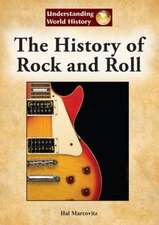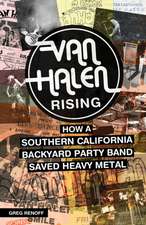The Beatles and Humour: Mockers, Funny Papers, and Other Play
Editat de Prof Katie Kapurch, Dr Richard Mills, Dr. Matthias Heymanen Limba Engleză Hardback – 6 sep 2023
Preț: 540.31 lei
Preț vechi: 773.98 lei
-30% Nou
Puncte Express: 810
Preț estimativ în valută:
103.39€ • 108.22$ • 86.05£
103.39€ • 108.22$ • 86.05£
Carte tipărită la comandă
Livrare economică 01-15 aprilie
Preluare comenzi: 021 569.72.76
Specificații
ISBN-13: 9781501379345
ISBN-10: 1501379348
Pagini: 280
Dimensiuni: 152 x 229 x 20 mm
Greutate: 0.54 kg
Editura: Bloomsbury Publishing
Colecția Bloomsbury Academic
Locul publicării:New York, United States
ISBN-10: 1501379348
Pagini: 280
Dimensiuni: 152 x 229 x 20 mm
Greutate: 0.54 kg
Editura: Bloomsbury Publishing
Colecția Bloomsbury Academic
Locul publicării:New York, United States
Caracteristici
Answers the questions, "Why do the Beatles matter?" and "Why are the Beatles still popular?," which are ongoing queries in both academic and non-academic discussions of popular culture.
Notă biografică
Katie Kapurch is Associate Professor of English at Texas State University, USA. Her books include Victorian Melodrama in the Twenty-First Century (2016), New Critical Perspectives on the Beatles (2016 with Kenneth Womack), and Blackbird: How Black Musicians Sang the Beatles into Being (2023). Forthcoming books include Disney Plus Beatles with Bloomsbury Academic.Richard Mills is Senior Lecturer in Literature and Popular Culture at St Mary's University, UK. He is the author of The Beatles and Fandom: Sex, Death and Progressive Nostalgia (2019) and co-editor of Mad Dogs and Englishness (2017). Forthcoming books include The Beatles and Black Music: Post-colonial Theory, Musicology and Remix Culture with Bloomsbury Academic.Matthias Heyman is Assistant Professor in the Arts at Vrije Universiteit Brussel and Lecturer at Koninklijk Conservatorium Brussel, where he is the Vice-chair of Research. He also is Postdoctoral Fellow at LUCA School of Arts, Leuven and freelances as a double bassist. He has a forthcoming monograph on jazz bassist Jimmie Blanton.
Cuprins
Editor and Contributor BiosIntroduction: Mockers, Funny Papers, and Rolling Up: Why the Beatles are Still in Play Katie Kapurch, Texas State University, USA, Matthias Heyman, Vrije Universiteit Brussel, Belgium, and Richard Mills, St Mary's University, UKPART I: Playing Together1. The Beatles and the Bard, the Walrus and the Eggman: Playing with William Shakespeare and Lewis Carroll and/as Perspective by IncongruityKatie Kapurch, Texas State University, USA2. I Laugh and Act Like a Clown: The Beatles as Paradoxical ClownsMatthias Heyman, Vrije Universiteit Brussel, Belgium3. Defuse, Dilute, Deflate: The Beatles Turn It On and Laugh It OffAviv Kammay, Wingra School, USA4. Billy Preston and the Beatles Get Back: Black Music and the Wisdom of Wordplay and WitMike Alleyne, Middle Tennessee State University, USA, Walter Everett, University of Michigan, USA, and Katie Kapurch, Texas State UniversityPART II: Playing Solo5. Madcap Laughs: The Evolution of John Lennon's HumorJeffrey Roessner, Mercyhurst University, USA6. "Shall We Dance? This is Fun!": Paul McCartney's Popular Song PastichesDavid Thurmaier, University of Missouri-Kansas City Conservatory, USA7. "I Was So Young When I Was Born": George Harrison and the Mansion of MirthJohn Covach, University of Rochester, USA8. George Martin, Parlophone Records, and Great Britain's FunnymenKenneth Womack, Monmouth University, USA, and Ed Zareh, writer, USA9. Yoko Ono's Avant-Garde HumorStephanie Hernandez, Independent Scholar, UKPART III: Playing in Context10. Bug Music: Beatle Memes in Sixties American SitcomsMatthew Schneider, High Point University, USA11. The Beatles and the Birth of British Comedy in the 1960s with Beyond the Fringe and Monty Python's Flying CircusRichard Mills, St Mary's University, UK12. Pastiche, Parody, or Post-Irony? The Beatles' Influence on Tears for FearsMark Spicer, Hunter College and the Graduate Center, City University of New York, USAIndex
Recenzii
The Beatles changed the world in so many ways-one of them was changing how the world laughs. The Beatles and Humour is a fascinating study of the Fabs' madcap comic innovations, from A Midsummer Night's Dream to 'Maxwell's Silver Hammer.'
The Beatles and Humour makes a welcome addition to the critical study of the Beatles as a cultural phenomenon. Contributors to the volume provide wide-ranging analyses that not only explore how the Beatles contributed (and still contribute) to popular culture but also how they were influenced by the humour, language and attitudes of postwar Liverpool and Britain.
Kapurch, Mills, and Heyman's wide-ranging edited volume proves the Beatles were legendary not just for their music, but for their wit. Whether larking about took the form of wordplay, spoofs, sarcasm, insightful satire, or surreal, absurd nonsense, the Fab Four continually affirmed that comedy was a central weapon in their entertainment arsenal. The real beauty of this book, though, is that it demonstrates precisely how the band's humour was used, exactly what that reveals. After all, humour is never quite humour. Improvised comedy instead communicates things about creativity, play, gender, nationality, class, community, locality, and tradition. As a pioneering book on the subject, Kapurch, Mills, and Heyman's volume will become a model in future not just for how scholars talk about the Beatles having a laugh, but rather for how we can engage with the whole subject of popular music and comedy.
This is an overdue work, one of the many reasons the Beatles made such a strong and lasting impression was that they came across as four good natured and witty young men. This collection uncovers the many factors that made them that way.
The Beatles and Humour makes a welcome addition to the critical study of the Beatles as a cultural phenomenon. Contributors to the volume provide wide-ranging analyses that not only explore how the Beatles contributed (and still contribute) to popular culture but also how they were influenced by the humour, language and attitudes of postwar Liverpool and Britain.
Kapurch, Mills, and Heyman's wide-ranging edited volume proves the Beatles were legendary not just for their music, but for their wit. Whether larking about took the form of wordplay, spoofs, sarcasm, insightful satire, or surreal, absurd nonsense, the Fab Four continually affirmed that comedy was a central weapon in their entertainment arsenal. The real beauty of this book, though, is that it demonstrates precisely how the band's humour was used, exactly what that reveals. After all, humour is never quite humour. Improvised comedy instead communicates things about creativity, play, gender, nationality, class, community, locality, and tradition. As a pioneering book on the subject, Kapurch, Mills, and Heyman's volume will become a model in future not just for how scholars talk about the Beatles having a laugh, but rather for how we can engage with the whole subject of popular music and comedy.
This is an overdue work, one of the many reasons the Beatles made such a strong and lasting impression was that they came across as four good natured and witty young men. This collection uncovers the many factors that made them that way.
